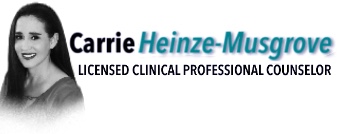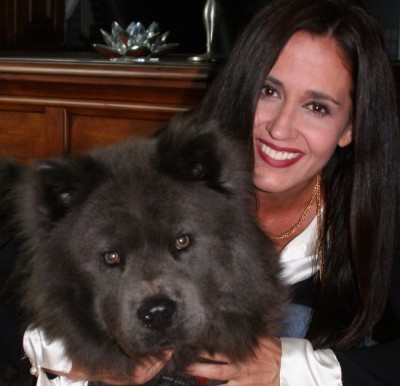“Doors are opening. The wait wasn’t punishment. It was preparation.” Why do we believe that bad things happen to us … Continue reading »
Are questions like these consuming your thoughts? Sometimes we need guidance to get past emotional turmoil and back on a path towards happiness in our relationships and our lives.
Our relationships are the most important aspect of our lives. Healthy relationships are essential to leading a happy life. Starting, ending, fixing or improving our relationships are often clouded with emotions which lead to bad decisions causing grief, depression, anger, resentment, or simply living a life we don’t like in order to placate others.
Whether your relationship issues revolve around your spouse, partner, business associate, boss or family, they all have common elements that determine whether the relationship is a positive part of your life or something you always struggle with.
Imagine how much better your relationships and your life will be when you can communicate effectively and set boundaries. When you feel appreciated and no longer feel taken advantage of. I want to help you get there. Let’s start right now.
Infidelity and Rejection
Shock. Rage. Denial. The feeling that your entire world has instantly changed. The sudden loss of the warmth and security you took for granted. Shame and self-doubt from not being good enough. Sadness over what you have lost. Anger from the deception and misplaced trust. Fear that you will never replace what you have lost. Those images playing over and over in your head. And pain like you have never known.
Is this the new you?
Not at all.
Whether you have ended the relationship, plan to end it, or want to fix it, the most important part remains the same. It is the realization that you deserve more. That the actions, opinions, and mistakes of the people around you do not define you. You must regain your self-confidence and your self-worth. Without these things, you cannot move forward.
You are fully capable of finding your way through this… I promise you. I will help you.
Toxic Relationships
Do you feel drained or constrained to act in ways not necessarily of your choosing? A toxic relationship might be the reason. There is a good chance that you are not taking care of yourself mentally or physically like you should.
Toxic relationships are often characterized by repeated, mutually destructive modes of relating to each other. They often feature emotional blackmail and a struggle for dominance. One or both of you might feel controlled, abused, jealous, possessive, manipulated, desperate, selfish, rejected, unsafe or taken for granted.
You might feel drawn into mind games against your will. Or feel manipulated by the other person’s overly dramatic, erratic emotions. At work, we might realize we’ve been cleverly manipulated into something unethical — by a boss or fellow employee with a lack of integrity.
However, one common theme in a toxic relationship is the intense draw toward each other, despite the mutual pain that is caused.
If you are in a relationship that has these characteristics it does not necessarily mean it has to end. But recognizing how these characteristics affect you is the first step towards improving the negative aspect of your relationships. Towards improving your relationship. And your life. Let’s get started.
Codepency
Codependency is an emotional and behavioral condition that affects a person’s ability to have healthy, mutually satisfying relationships. Also known as “relationship addiction,” codependents often form or maintain relationships that are grounded in control and neediness rather than love and respect.
Characteristics of a codependent person may include:
• An exaggerated sense of responsibility for the actions of others
• A tendency to confuse love and pity, with the tendency to “love” people they can pity and rescue
• A tendency to do more than their share, all of the time
• Chronic feelings of boredom and emptiness
• A tendency to become hurt when people don’t recognize their efforts
• An unhealthy dependence on relationships. The co-dependent will do anything to hold on to a relationship; to avoid the feeling of abandonment
• An extreme need for approval and recognition
• A sense of guilt when asserting themselves
• A compelling need to control others
• Lack of trust in self and/or others
• Fear of being abandoned or alone
• Difficulty identifying feelings
• Rigidity/difficulty adjusting to change
• Problems with intimacy/boundaries
• Chronic anger
• Lying/dishonesty
• Poor communications
• Difficulty making decisions
• Low self-worth
If you identify with some of these characteristics, or if you are dissatisfied with yourself or your relationships, begin by learning more about codependency. The more you understand codependency, the better you can cope with its effects. A Codependency Assessment tool is available here.
If you think you might be codependent, consider seeking the help of a therapist. The greatest problem people face in getting help for codependency is a lack of self-awareness. You simply don’t see your role in the relationship dysfunction. Codependents instinctually know that the relationship is unhealthy, but they are convinced that the problem lies with the other person or that the problem is situational. “If I could just fix him/her, then everything would be fine.”
Ending the relationship isn’t always necessary, nor is it the only solution. To repair a codependent relationship, it’s important to set boundaries and find happiness as an individual. This allows you to work on developing new, healthier ways of coping while finding your independence.
Codependency is learned. Therefore, it can be unlearned. Contact me today to begin.
Is my relationship healthy?
What makes a healthy relationship?
A healthy relationship is when two people develop a connection based on:
- Mutual respect
- Trust
- Honesty
- Support
- Fairness/equality
- Separate identities
- Good communication
- A sense of playfulness/fondness
What are signs of a healthy relationship?
A healthy relationship should bring more happiness than stress into your life. While in a healthy relationship you:
- Take care of yourself
- Have good self-esteem independent of your relationship
- Maintain and respect each other’s individuality
- Maintain relationships with friends and family
- Have activities apart from one another
- Are able to express yourself in the environment you are in without fear of consequences
- Are able to feel secure and comfortable
- Allow and encourage other relationships/friendships
- Take interest in one another’s activities
- Trust the person
- Ability to be honest with each other
- Have the option of privacy
- Have respect for sexual boundaries in intimate relationships
- Give and take
- Resolve conflict fairly: Fighting is part of even healthy relationships; the difference is how the conflict is handled. Fighting fairly is an important skill to help you have healthier relationships.
What are the signs of an unhealthy relationship?
At times, all relationships will have some of the characteristics listed below. However, unhealthy relationships will exhibit these characteristics more frequently and cause you stress and pressure that is hard to avoid.
While in an unhealthy relationship you:
- Neglect your own needs
- Feel pressure to change who you are for someone else
- Fear rejection
- Feel worried when you disagree with someone
- Engage in people pleasing behaviors
- Define your worth by others
- Lack communication skills
- Feel pressure to quit activities you usually/used to enjoy
- Pressure someone into agreeing with you or changing to suit you better
- Notice one of you has to justify your actions (e.g., where you go, who you see)
- Have a lack of privacy, and may be forced to share everything with the other person
- Notice arguments are not settled fairly
- Experience yelling or physical violence during an argument
- Attempt to control or manipulate each other
- React instead of listen
- Notice the person attempts to control you and criticizes your behaviors
- Do not make time to spend with one another
- Have no common friends, or have a lack of respect for each others’ friends and family
- Sacrificing what you want for what you feel others need
- Notice an unequal control of resources (e.g., food, money, home, car, etc.)
- Have poor boundaries/Allow others to take advantage
- Experience a lack of fairness and equality




